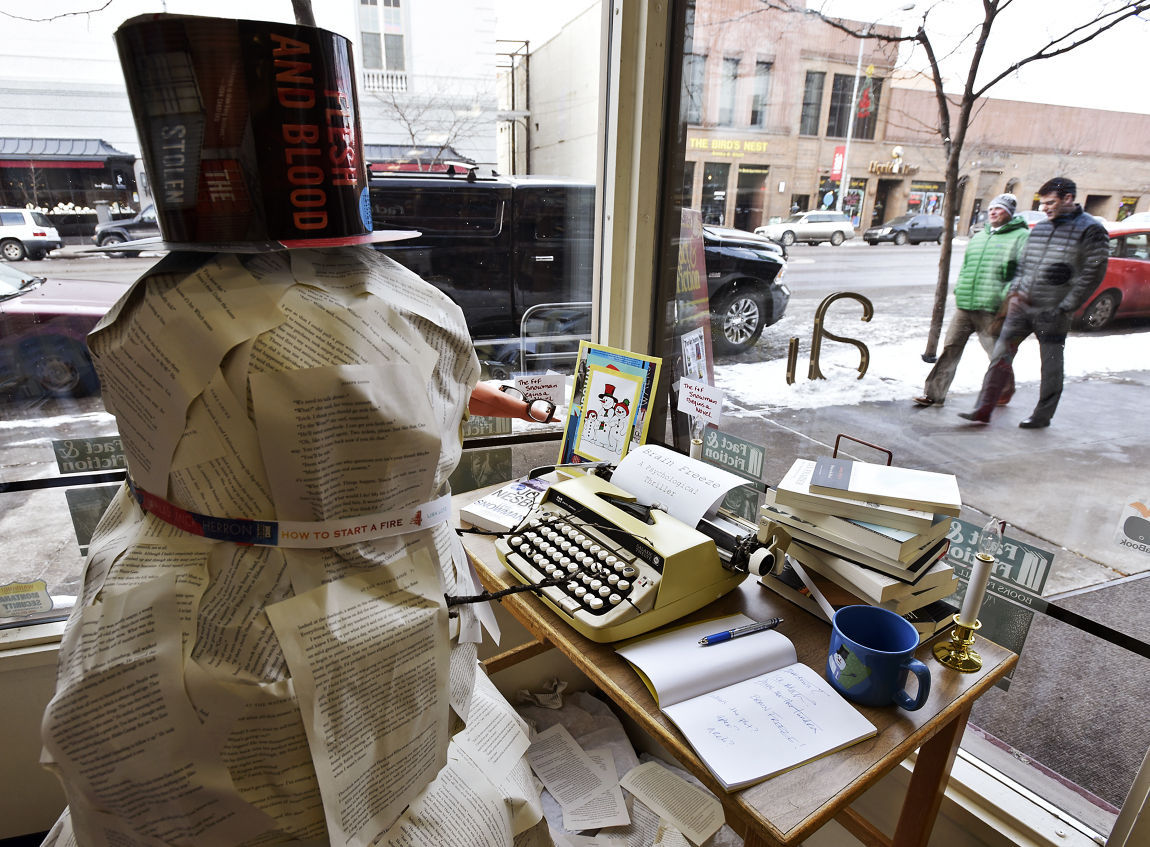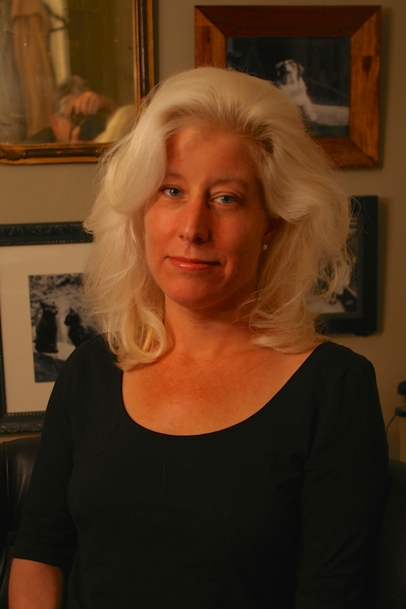 |
| photo: Kurt Gegenhuber |
A recipient of the Academy of American Poets' James Wright Award and a graduate of the University of Minnesota's MFA program, Jennifer Willoughby lives in Minneapolis and works as an advertising copywriter. Her poems have appeared in the Believer and the Boston Review, among other publications. Beautiful Zero (Milkweed Editions, December 2015) is her first book and is the 2015 recipient of the Lindquist & Vennum Prize for Poetry.
On your nightstand now:
Mary Ruefle's Madness, Rack and Honey. The chapter about the first Apollo mission, its astronauts, their ultimate fates and how human relationships with space and science dovetail with poetry is amazing. Everything she says seems exactly how a poet should make sense of her world.
Favorite book when you were a child:
All Creatures Great and Small by James Herriot. It made me want to be a veterinarian, and know that I never, ever could.
Your top five authors to take with when stranded on a desert island:
Joyce Carol Oates: She's historic, folkloric and canonical and supernaturally able to voice victims, predators, seekers, seers, young, old and specifically American places in time. The gothic sensibility that invades even her non-gothic work is just one of her many charms.
Emily Dickinson: For her genius, wit, rhyme and sideways power to be both incredibly secretive and wildly engaged with the world.
Agatha Christie: Haters can hate, but I was weaned on her novels. They comfort me like bourbon and fuzzy sweaters.
P.G. Wodehouse: Evelyn Waugh said that Wodehouse "will continue to release future generations from captivity that may be more irksome than our own," and boy, was he right. Any novelist that can describe a baby as having a face like "a homicidal fried egg" is all right in my book.
Mary Ruefle: Besides Madness, Rack and Honey, I love Trances of the Blast (her poem about rabbits in a graveyard is right up there with Keats's "When I Have Fears That I May Cease to Be"), her whiteout poems and basically everything. I am trying to get my hands on the rare and rather unbelievably priced Indeed I Was Pleased with the World.
Book you've faked reading:
There must be hundreds of books I've read that I can't remember having read. Does that count? I have too much anxiety about being caught in a lie to fake reading books.
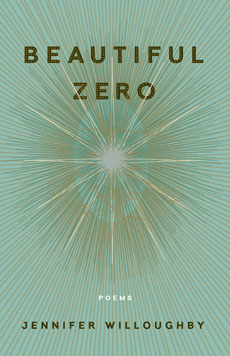 Book you're an evangelist for:
Book you're an evangelist for:
Miranda July's It Chooses You. It's both an elaborate exercise in artistic procrastination and incredibly moving documentary writing about beautifully weird, obsessed, isolated people and the physical stuff in their lives. July's ability to be baldly honest about herself without taking anything away from her subjects is uncanny and awe-inspiring.
Book you've bought for the cover:
Lots of early and mid-century pulp paperbacks in the heyday of tawdry, gaudy and bawdy book cover art: Bullet for a Blonde by Paul Kruger, Beebo Brinker by Ann Bannon and Evil Under the Sun by Agatha Christie are just a few.
Book you hid from your parents:
Fanny by Erica Jong. I think I thought it was dirtier than it really was, innocent that I was. It's a rollicking, sexy, feminist reimagining of John Cleland's Fanny Hill (a pretty dirty book in its own right, if you like that kind of thing).
Book that changed your life:
Lorrie Moore's Self-Help. I read it in high school, after being pleasurably embalmed in Hemingway, Fitzgerald, Flaubert, de Maupassant, etc. Moore's book was a lightning bolt because it was so of its time, which was my time, and it was the first time I grasped the concept of contemporary American writing, and writers as existing on a spectrum that included my experiences. That is, I saw writing as a living thing, not an artifact, which meant there was a hope I could do it, too.
Favorite line from a book:
Most any from "Soonest Mended" by John Ashbery in The Double Dream of Spring. "Barely tolerated, living on the margin/ In our technological society, we were always having to be rescued," or "This was our ambition: to be small and clear and free." I love when Ashbery trots down hapless paths, he's both seeking and aimless, and old and cranky and young and funny simultaneously, like Larry David crossed with Saint Paul.
Five books you'll never part with:
Jane Eyre by Charlotte Brontë. This is a great gothic adventure, and Jane is a feminist trailblazer, confronting monsters with steadiness, brains and bravery.
The Selected Poems of Rainer Maria Rilke. I first read Stephen Mitchell's translation in German class, so it's the version that's imprinted on me. Like a baby duck.
Oranges Are Not the Only Fruit. Hooray for Jeanette Winterson's generous ferocity! And this book about a girl using fantasy, humor, stubbornness and imagination as both weapons to strengthen self identity and keys to salvation.
The Collected Poems of Frank O'Hara. I can always return to Frank and find new joy in his joy, his language and the sheer volume of people roaming his poems.
Dracula by Bram Stoker. Like the Greeks, I think horror is cathartic. Horror, fireworks and Internet cat videos. A far cry from any of the movie versions, Stoker's book is a great epistolary novel that channels Victorian sexual and class anxiety at the dawn of the Industrial Revolution, all while scaring the pants off you.
Book you most want to read again for the first time:
Donna Tartt's The Secret History. I distinctly remember the sense of discovery and breathtaking willingness to follow this author anywhere, which, as a reader, is the pull one always seeks.
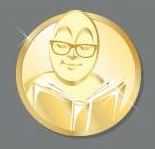



SHELFAWARENESS.1222.S1.BESTADSWEBINAR.gif)


SHELFAWARENESS.1222.T1.BESTADSWEBINAR.gif)
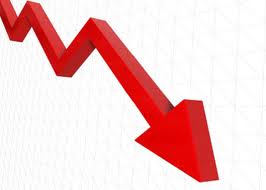 "Cool--but still balmy--weather in November was one of the factors keeping
"Cool--but still balmy--weather in November was one of the factors keeping 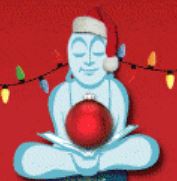 With just two weeks until Christmas, and Hanukkah nearly over, the annual holiday shopping rush is in full swing for independent booksellers nationwide. For many indies, things kicked off in November on Thanksgiving weekend, and the rush is not expected to slow until January.
With just two weeks until Christmas, and Hanukkah nearly over, the annual holiday shopping rush is in full swing for independent booksellers nationwide. For many indies, things kicked off in November on Thanksgiving weekend, and the rush is not expected to slow until January.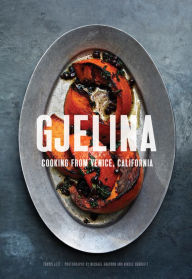 At
At 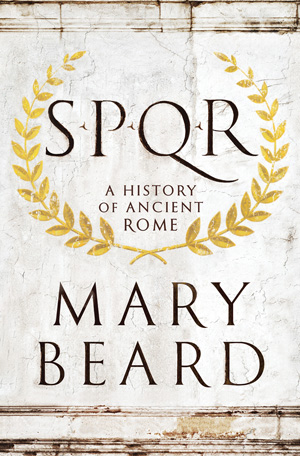 For Ezra Goldstein and Stephanie Valdez, owners of
For Ezra Goldstein and Stephanie Valdez, owners of  Valerie Koehler, the owner of
Valerie Koehler, the owner of 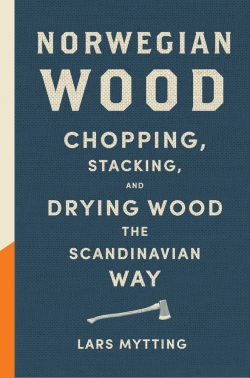 Elena Ferrante and Ta-Nehisi Coates are still dominating Oblong's bestsellers lists, but Lars Mytting's Norwegian Wood: Chopping, Stacking, and Drying Wood the Scandinavian Way, M Train, SPQR, Oliver Sacks's Gratitude, Roger Angell's This Old Man and Notorious RBG are all gaining momentum as gift buys. For non-book items, Blue Q and Sock It to Me Socks are selling so well that it's "mind-blowing." Hermans added that "the ones with dirty words sell the most."
Elena Ferrante and Ta-Nehisi Coates are still dominating Oblong's bestsellers lists, but Lars Mytting's Norwegian Wood: Chopping, Stacking, and Drying Wood the Scandinavian Way, M Train, SPQR, Oliver Sacks's Gratitude, Roger Angell's This Old Man and Notorious RBG are all gaining momentum as gift buys. For non-book items, Blue Q and Sock It to Me Socks are selling so well that it's "mind-blowing." Hermans added that "the ones with dirty words sell the most."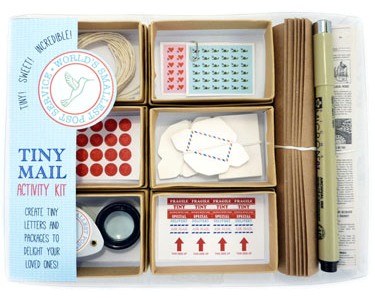 Geddis recently hired a staff member to handle all of Avid's non-book items, and so far the re-merchandising has had a great effect. Letter kits from Leafcutter Designs are selling well, as are Shinola journals. LeccareLollipops, which are made in Athens but not sold anywhere else in town, have been moving briskly. The store has also been selling more memberships in its Book Subscriptions Program (a book a month for any age and any reader) over the holidays.
Geddis recently hired a staff member to handle all of Avid's non-book items, and so far the re-merchandising has had a great effect. Letter kits from Leafcutter Designs are selling well, as are Shinola journals. LeccareLollipops, which are made in Athens but not sold anywhere else in town, have been moving briskly. The store has also been selling more memberships in its Book Subscriptions Program (a book a month for any age and any reader) over the holidays. In keeping with its tradition of supporting literacy, the
In keeping with its tradition of supporting literacy, the 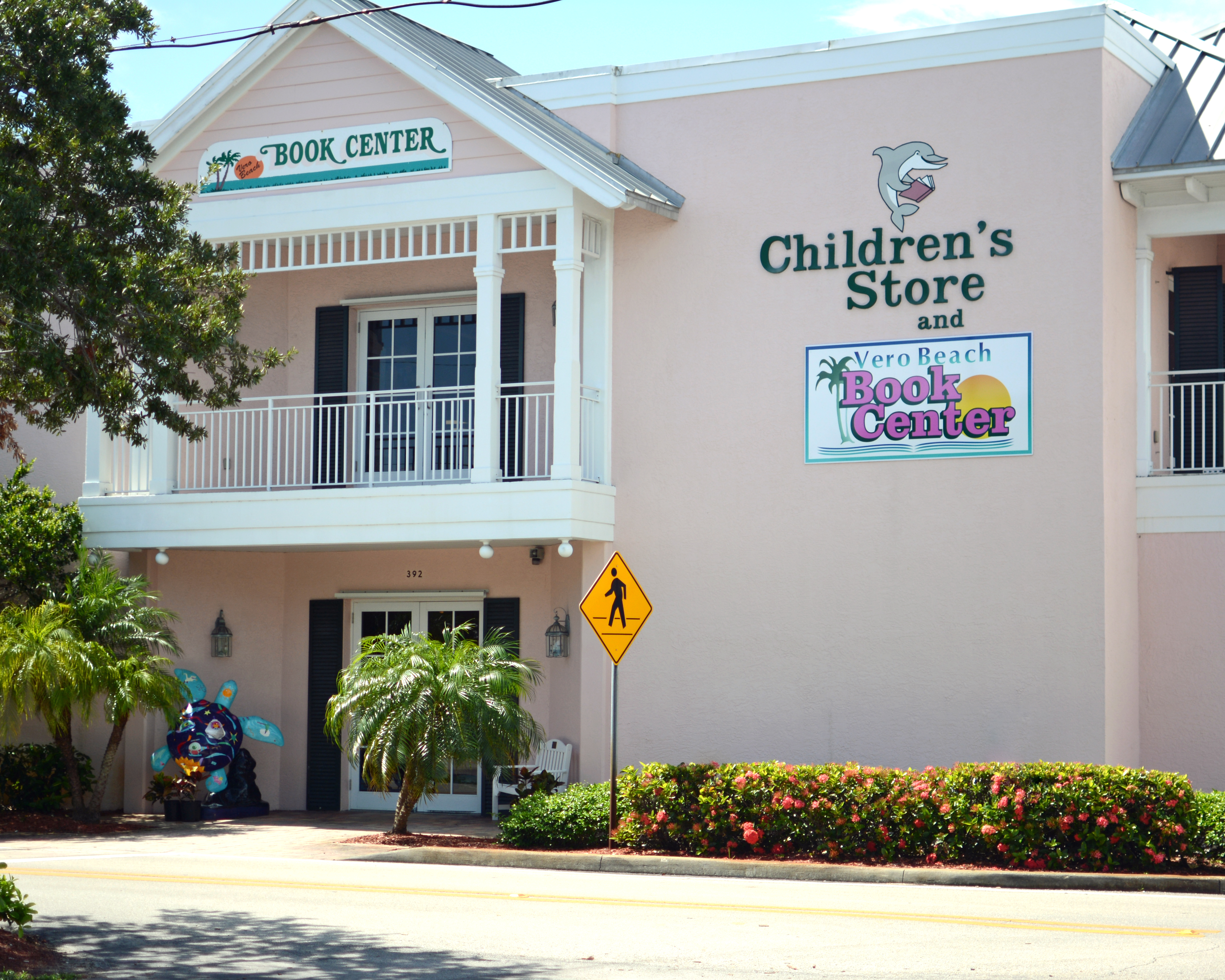
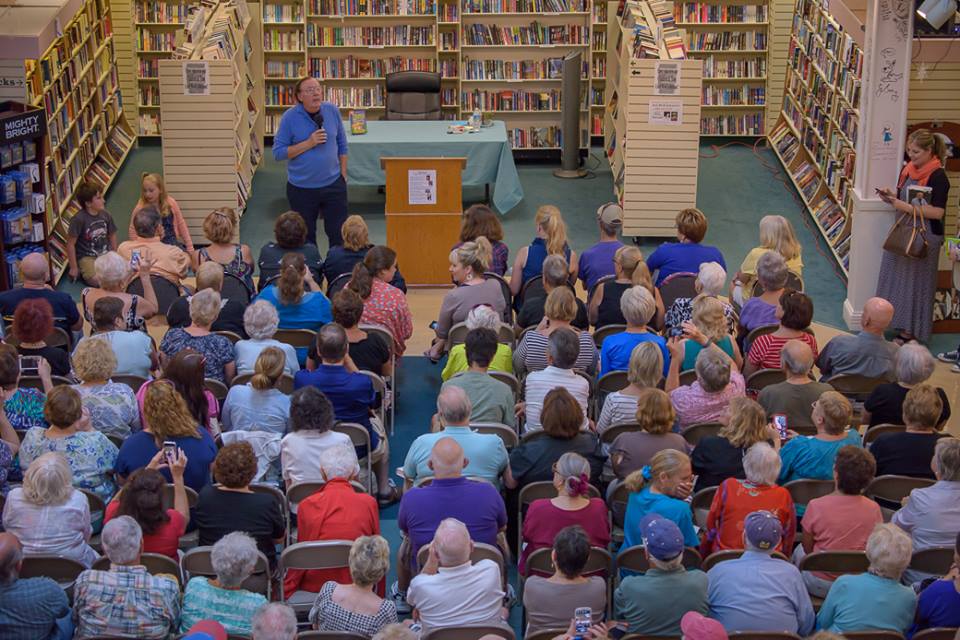
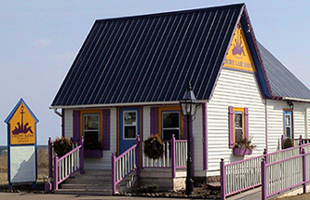 "If you're an avid reader and a lover of books, there's a tiny shop in Grand Marais [Minn.] that might just be up your alley," KQDS reported in a piece--headlined "
"If you're an avid reader and a lover of books, there's a tiny shop in Grand Marais [Minn.] that might just be up your alley," KQDS reported in a piece--headlined "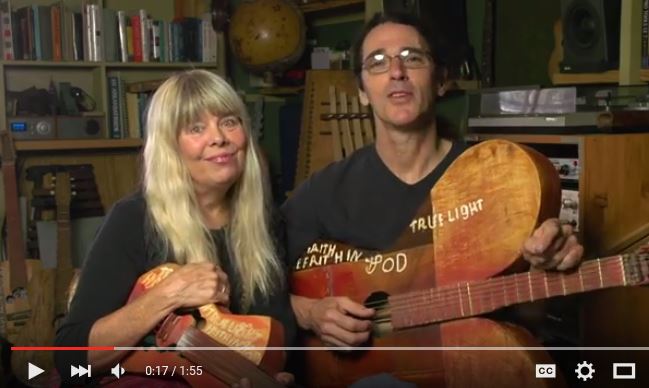 True Faith, True Light: The Devotional Art of Ed Stilley
True Faith, True Light: The Devotional Art of Ed Stilley
 Book you're an evangelist for:
Book you're an evangelist for: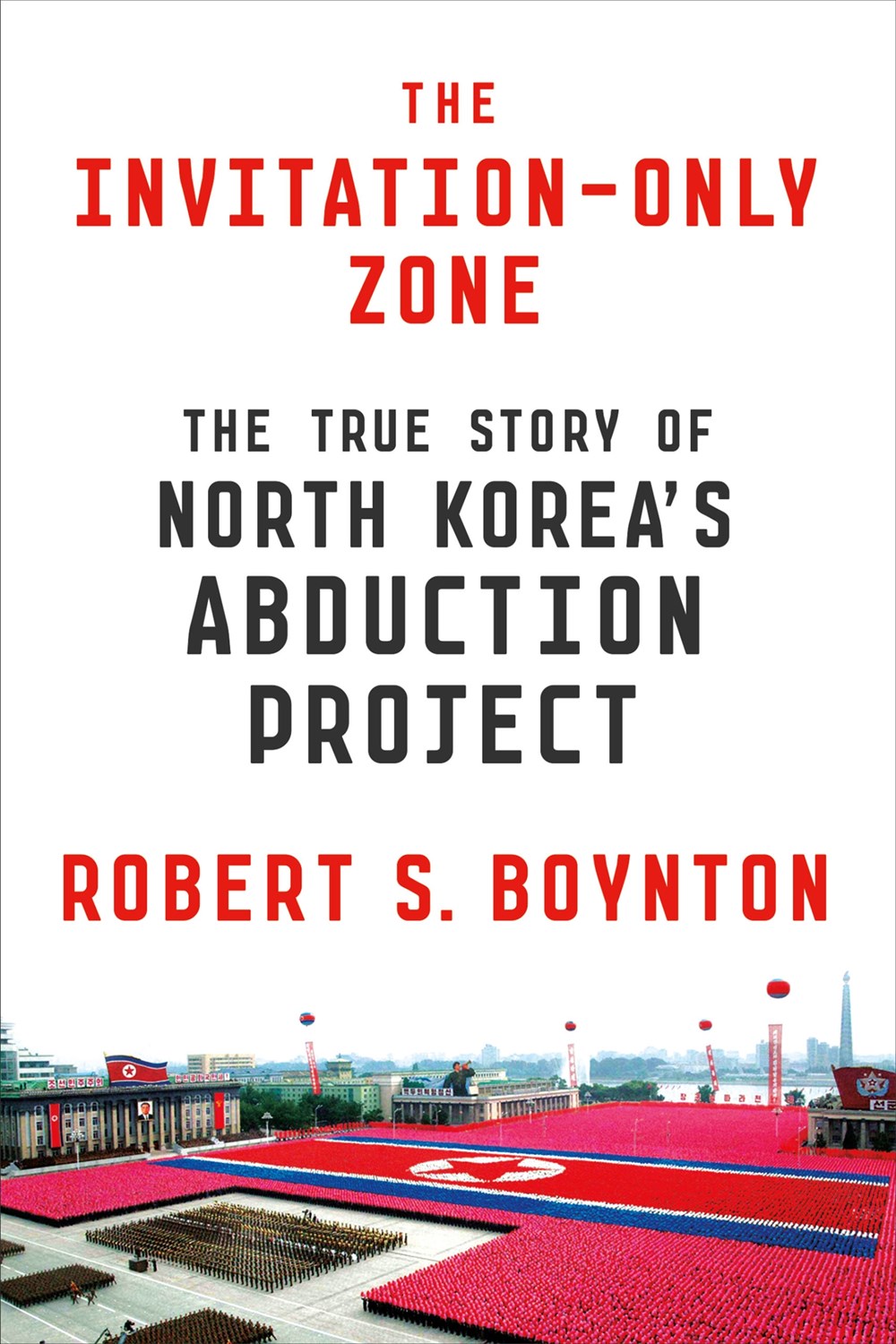 They vanished from beaches, from their European universities and vacations, and walking home after school. In his second book, The Invitation-Only Zone, Robert S. Boynton (The New New Journalism) pieces together the disturbing and still-unfolding story of North Korea's abductions of Japanese, South Koreans and other foreign citizens, from the 1950s to the present day.
They vanished from beaches, from their European universities and vacations, and walking home after school. In his second book, The Invitation-Only Zone, Robert S. Boynton (The New New Journalism) pieces together the disturbing and still-unfolding story of North Korea's abductions of Japanese, South Koreans and other foreign citizens, from the 1950s to the present day.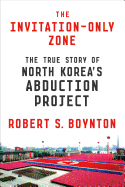
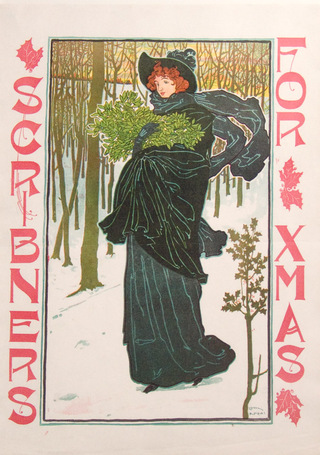 In 1962, the New York Times noted that Scribner's Bookstore in New York City started its holiday season "in early November, by sending out a catalogue to some 40,000 regular customers. By mid-November, the Gift Table is set up--art books, cook books, indeed books from archaeology to zoology.... Igor Kropotkin, the manager of the store and president of the American Booksellers Association, says that Christmas trade accounts for between 35% and 40% of the year's business."
In 1962, the New York Times noted that Scribner's Bookstore in New York City started its holiday season "in early November, by sending out a catalogue to some 40,000 regular customers. By mid-November, the Gift Table is set up--art books, cook books, indeed books from archaeology to zoology.... Igor Kropotkin, the manager of the store and president of the American Booksellers Association, says that Christmas trade accounts for between 35% and 40% of the year's business." 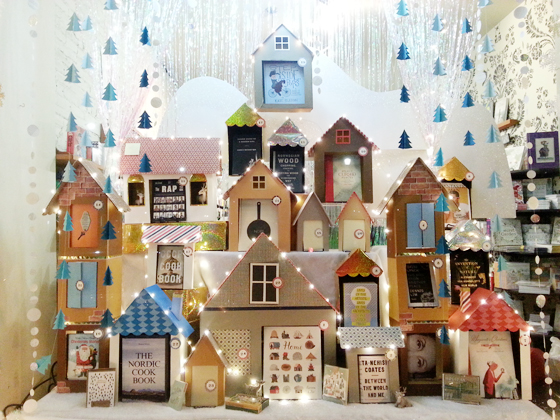 Type Books in Toronto "is
Type Books in Toronto "is 